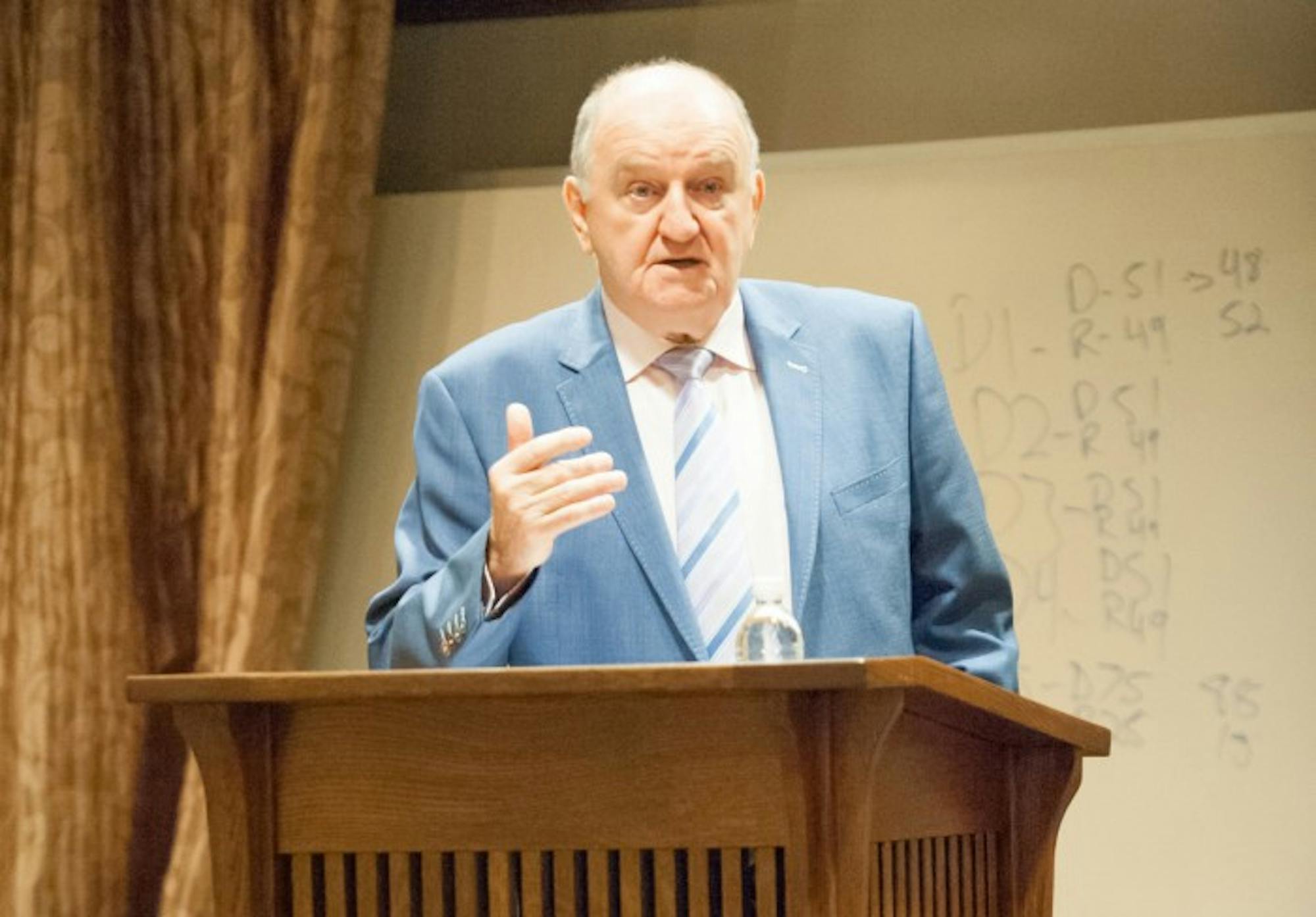Last week, Irish political commentator George Hook backed his bags and headed off to the closest thing America has to Ireland itself: the University of Notre Dame. Hook will be broadcasting his show from Notre Dame’s campus all throughout the week in a lead up to election day coverage.
First, however, Hook spoke on the 2016 United States political election as it is viewed by those in Ireland on Wednesday afternoon in Geddes Hall.
Hook said Irish citizens have always had a particular interest in United States politics due to certain connections to America.
“Every Irish person at this point has a relative in America and our economy is kept going by remittances from America,” he said. “The average guy in a pub can tell you that New Hampshire is the first primary and about Super Tuesday.”
In addition to these connections, Hook also cited the election of President John F. Kennedy as being especially important for Irish interest in American politics.
“Not only was the President of America a Catholic, but he was real Irish,” he said. “He was the real McCoy. We’re a long way away but we are inextricably connected with Americans.”
While there is high interest in American politics in Ireland, Hook said that public opinion is almost universally in favor of the Democratic Party.
“My father ... explained to me the difference between Democrats and Republicans: the Democrats were the good guys — they tax and spend and they look after the weaker people in society,” he said.
This favoring of the Democratic party, Hook argued, was due to the opportunities it gave Irish immigrants when they first came to America.
“Where the Irish ultimately came through in America was through politics and through the Democratic party,” he said.
This bias towards liberal ideas was reflected in Irish media, Hook said.
“Our media is completely different than American media,” he said. “There is no Limbaugh, no Fox News, all our media ... is uniformly liberal and, therefore, supporting the Democratic Party, by and large.”
Hook attributed the almost universal support of Democratic nominee, Hillary Clinton, to the emergence of feminism in Ireland.
“I believe that Ireland is now the most radically feminized country in the globe — radical feminism has taken over Ireland and it has particularly taken over in our media,” he said. “What has happened therefore is that [in] the media ... the columnists are feminists and are going to vote for Hillary and they’re going to vote for her because she’s a woman. That’s the only reason they’re going to do it.”
Despite what he saw as bias in the coverage of the election, Hook said he believed that this election could still be looked at from the Irish perspective as one of the worst in history. He said he believes this downward spiral of American politics began in 1968.
“From 1968 onward, I think you begin to see a polarization of American politics of which the nadir has been reached in 2016,” he said.
Hook said this polarization has lowered the level of political discourse in the United States.
“What makes [this election] really different — in my opinion looking at it from abroad — is that the debate is conducted in the most underhand and low way,” he said.













